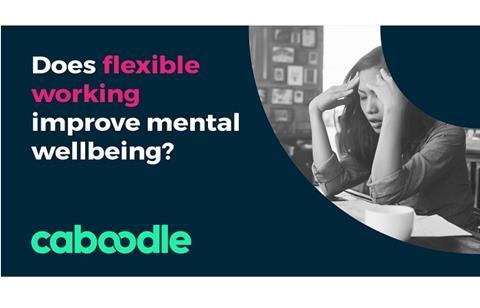
Flexible working is without doubt gaining popularity and is becoming more commonplace in businesses across the world. A poll carried out by YouGov in 2018 found that only 6% of employees are working the traditional hours of 9 to 5 and only 14% of employees would opt to work those hours. According to Metro, flexible working hours are the most desired benefit for employees from 34-54 years of age and the second most desired for those in the 18-24 category.
It’s not always feasible for some companies or employees in roles that don’t allow for flexible working, however for those that can, there are a number of reasons why companies should at the very least consider implementing flexible working if they don’t already.
Some companies implement flexible working with their employees’ mental wellbeing in mind. But does it really help improve mental wellbeing?
What the research saysThe research is conflicting in some cases; however, it does provide some insight into specific flexible working practices that do work and help improve employee mental wellbeing.
Research included in the CIPD Flexible Working Survey 2019 found that respondents were more likely to report that flexible working positively affected their mental wellbeing. That said, the figures showed 35% of respondents reported positive effects while 30% reported no positive effects, so the figures weren’t entirely conclusive.
The research also found that the best types of flexible working for improving mental health were job-share or term-time working. Quite surprisingly, those who worked from home showed no difference in the level of pressure they felt in their role.
A study conducted in 2010 by Durham University showed that flexible working had positive effects on tiredness, sleep quality, alertness, blood pressure as well as mental health.
A study into working hours conducted over 12 years in Australia found that those who worked more than 40 hours per week compared to those who worked 40 hours or less experienced significantly worse mental health.
However, interestingly the CIPD Flexible Working Survey 2019 reported that of all the types of flexible working, reduced hours was one where respondents actually reported an increased negative impact on their mental health. Combined with the findings from the working hours report, this could show that the optimum level of hours would be somewhere between 30-40 hours, and anything lower or higher could have a negative impact.
What can employers do?Consider allowing flexibility from the traditional 9-5 hours if you don’t already. According to Mind, a UK mental health charity, more flexible hours allow for a better work-life balance, helping those struggling with mental health avoid stresses like excessive traffic during the work commute and helping them fit in medical appointments when necessary. Furthermore, medication for poor mental health can often be quite sedative and can leave the person feeling excessively drowsy in the morning. Allowing for flexibility with hours could help the person avoid this.
As mentioned, reducing hours for those who work in excess of 40 hours per week could significantly help improve mental health. As ever, good communication with the employee is crucial to working out what hours would suit them best. The earlier and more frequent the communication here the better, as it allows a solution to be found quicker and allows for the company to accommodate a reduction in hours.
Consider allowing for remote working. While some research mentioned in this article shows that remote working doesn’t necessarily reduce the pressure felt by the employee, it does help with removing the stress of commuting and it also helps give the employee a change of environment. Working from a busy office or workplace for the typical 5 days a week could be stressful for someone experiencing poor mental health. Again, communication is key. Communicate with your employees and work together to find an arrangement that will be best for your employee’s mental health.
How can employee benefit schemes help with flexible working?Many employee benefit schemes can help overall with employee mental health. There are schemes that directly target mental health while many schemes will help with physical and financial wellbeing which can be causes of poor mental health.
Here are a few schemes that could help with flexible working.
Workplace ISA’sA great option when it comes to saving and often better than what you’ll typically find on the high street. When reducing hours, some employees may see their pay decrease, particularly if they’re paid hourly. Thus, more savings options could help employees stay on top of their finances and make their pay go further.
Tech SchemeFor employees working from home, the Technology Scheme could be a great benefit. Not all companies can provide equipment for working from home and sometimes the employee may want to purchase the equipment themselves.
Employee DiscountsDiscounts are great generally for making employees’ pay go further. However, for those on term time working with families, discounts can help with those back to school costs. Furthermore, it can be great for parents taking their children out during the school holidays.
Holiday TradingHoliday Trading is great for improving work-life balance which helps improve mental health. If employees feel like reduced working hours are helping, offering Holiday Trading is a great way to help employees improve their work-life balance further and improve their mental health.
If done right, flexible working can absolutely help improve mental wellbeing. While some research on this subject is a little conflicting, adopting the right flexible working practices for employees is crucial to its success in improving mental wellbeing. Communicate with employees, select the right type of flexible working and support it with employee benefit schemes and follow up with regular reviews with your employees to assess the effectiveness of your flexible working practices.











